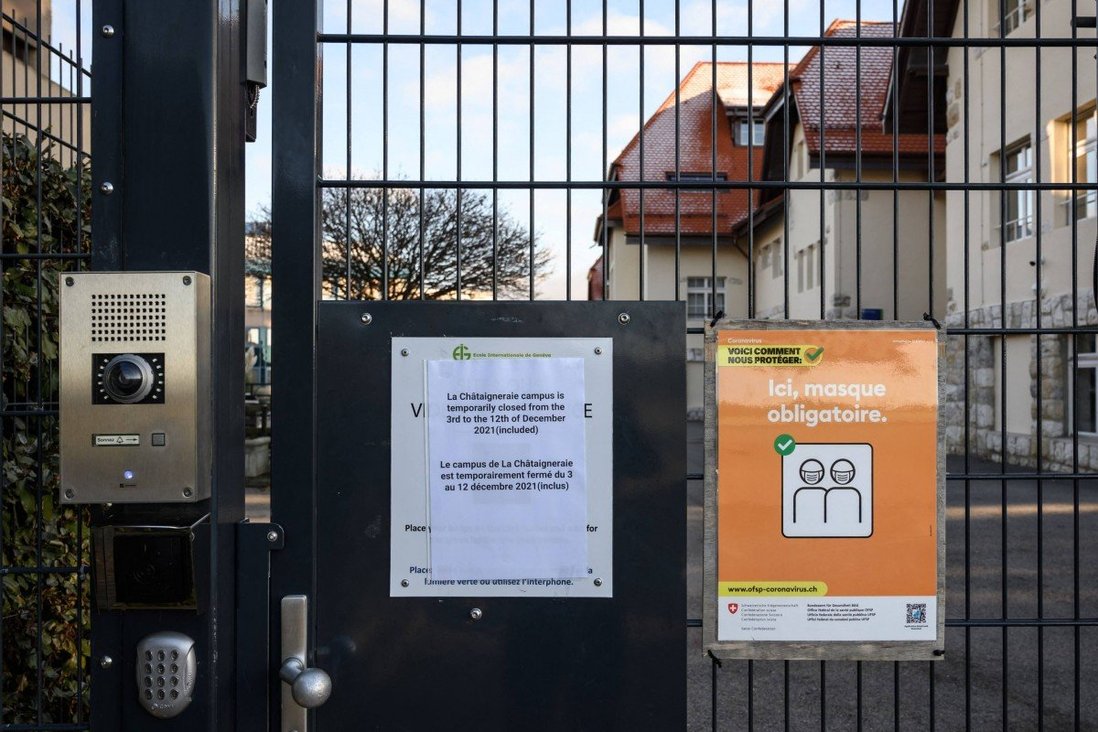By Karim Azhari and Yeon Ji Oh, Year 12
A strain of COVID-19 known as the Omicron variant has been raising concern around the world for the past few months. Omicron is currently one of the 5 “variants of concern” named by the World Health Organization and had first been detected in South Africa in November. It got its name after the Greek letter “O” in the same way the Alpha( Αα) and Delta(Δδ) variants were given names from the Greek alphabet called. This is done in order to simplify discussions of the virus and also to prevent attaching stigma towards a specific geographic group. For the moment, it is not yet clear how much more transmissible or more dangerous this variant is compared to other variants, although evidence seems to show that it is more contagious but often less severe.
A trend of increasing Omicron cases can be observed in Europe, including in Switzerland. Currently, omicron cases account for approximately 55 % of the Covid cases in Switzerland. However, back in December, when cases of the new variant were first discovered in Switzerland, there was widespread panic due to the lack of information around the variant.
In nearby Vaud, Ecolint’s La Chataigneraie campus was put into a quarantine by the cantonal medical services after two detected cases of Omicron at the school. The quarantine started on the 3rd of December and lasted ten days.
As last year uninterruptedly went on in person in all 3 campuses, we wanted to investigate this sudden measure which was taken shortly before Christmas break. Maddox Feldbaum, a secondary school student at La Chataigneraie, kindly answered a few questions we had with regard to this issue.
Maddox affirmed that the students received “reports of multiple staff members” warning them of the potential risks associated with Omicron. The rationale behind La Chat’s closure, he explained, was that it “wanted to stop spreading immediately”. Maddox believes that the Omicron is an imminent threat, and supports the school’s decision. He explained that “multiple other people tested positive in quarantine and they could’ve spread a lot of Covid pretty easily.” It is evident that the students would have been largely exposed to the new variant if the school’s doors had remained open, which explains the swiftness of the measure’s implementation.
We were equally interested in the online learning which took place at La Chat and wanted to hear first hand feedback on the process. According to Maddox, the impact of online schooling was minimal, as it only lasted 5 days. Nonetheless, he stated that “it is harder to focus in an online school”. His impression made us reflect on the possible implications of this variant in terms of our schooling experience as Ecolint students. In the event of a prolonged school closure, how would students maintain their focus? Would it hinder our ability to learn in the long-run? Is the school better off sustaining its current in-person learning process?
Finally, we asked Maddox about his general impressions and thoughts concerning the Omicron. He is well aware of the risks it poses, and believes immediate precautions should be taken: “The Omicron variant clearly spreads way faster and bypasses vaccines at higher rates so it’s definitely worrying. Anyone who can should get boosted”.
In conclusion, all throughout this pandemic, we are inevitably bound to deal with several new variants, the effects of which are unclear. Let’s not forget to always put our masks on and remain vigilant. We’re all in this together !



